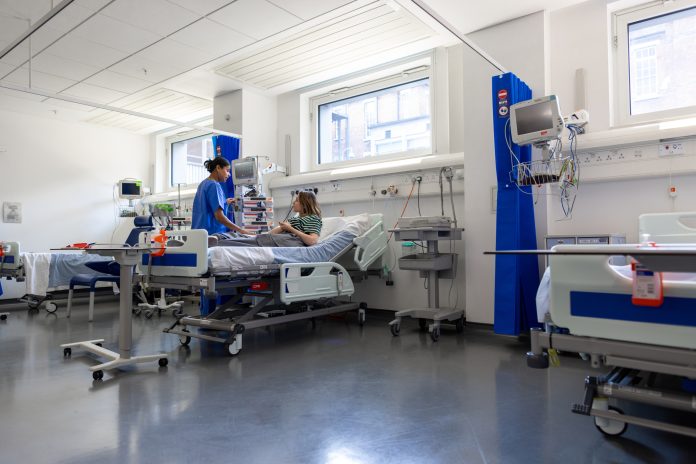Public Accounts Committee (PAC) raises concerns over NHS England abolition and its impact on patients and staff
Upcoming staff redundancies and NHS England’s abolition have caused great uncertainty for all involved within the healthcare system. In a report on the Department for Health and Social Care’s (DHSC) Accounts 2023-24, the Public Accounts Committee (PAC) emphasises its concern at the impact this uncertainty may have on patients and staff.
Unclear how NHS England abolition will impact key services
The UK Government announced the abolition of NHS England on 13 March 2025. Prime Minister Keir Starmer and Health Secretary Wes Streeting stated that NHS England would be merged into the Department of Health and Social Care (DHSC) to streamline operations and reduce bureaucracy. This restructuring is expected to impact approximately 15,000 staff members.
Since the announcement, the government has still not determined how this change will impact key services and targets to improve patient care.
PAC’s enquiry highlights the lack of clarity from the government, including:
- There is a lack of a clear plan for how DHSC and NHS England will achieve significant headcount reductions, and costs are involved.
- How the reductions fit in with the wider 10 Year Health Plan for the NHS.
- How savings made from reducing NHSE staff costs help frontline services.
- How the institutional knowledge of NHS England would be preserved following its abolition.
- The scale of headcount reductions in the DHSC and the geographical spread of the planned 50% headcount reductions in NHSE and across local Integrated Care Boards.
Huge improvements are needed to protect patients and public money
In clinical negligence, the PAC emphasised its disappointment that huge improvements still need to be made to protect patients and public money better.
£58.2bn has been set aside to cover the potential cost of clinical negligence events in the latest accounts – the second largest liability across government after nuclear decommissioning. Furthermore, 19% of the money awarded to claimants in 2023-24 goes to their lawyers (£536m of the total £2.8bn paid that year), on top of the fees payable for the Government Legal Team. These figures illuminate the many incidents of patient harm, and the PAC is calling on the government to set out a plan with clear actions to improve patient safety across the NHS, particularly in maternity services.
The report also highlights a lack of information provided by the DHSC in other key areas of interest to the PAC and Parliament. Its accounts contain no straightforward overarching narrative on social care, with a lack of precise data on productivity, prevention, digital and artificial intelligence, and palliative and end-of-life care.
The Public Accounts Committee has criticised the UKHSA’s handling of its new high-security lab project in Harlow, where costs have ballooned from £530m to £3.2bn over a decade. Despite £400m already spent, the site remains unfinished, raising concerns over delays and the risk of inadequate protection against future diseases. The report urges urgent action as current lab facilities are near the end of life.
Sir Geoffrey Clifton-Brown MP, Chair of the Committee, said: “Our report shows a health system still under pressure on several fronts, pressure which will need strong decision-making from government to begin to be relieved. One significant decision, the abolition of NHS England, was announced whilst our Committee was questioning senior health officials. All those who work for NHSE deserve our ongoing gratitude for their efforts to safeguard the nation’s health. But it has been two months since government’s decision to remove what up until now has been seen as a key piece of machinery without articulating a clear plan for what comes next, and the future for patients and staff remains hazy.
“These changes also require 50% reduction in local health board staff, including frontline services such as health prevention, GP services and dentistry. These services are usually the first interaction a patient has with the NHS, so we will require further reassurance and clarity on how government intends these changes to play out on the local level.
“The fact that government has set aside tens of billions of pounds for clinical negligence payments, its second most costly liability after some of the world’s most complex nuclear decommissioning projects, should give our entire society pause. This is a sign of a system struggling to do right by the people it is designed to help. It must be a priority of the highest order for government to reduce tragic incidences of patient harm, and lay out a mechanism to reduce legal fees to manage the jaw-dropping costs involved more effectively.
“Our Committee has also returned with this report to the vexed question of new high containment labs at Harlow. Of all the projects to have been poorly overseen, the lack of clear direction on a critical piece of infrastructure designed to keep us all safe from infectious disease is particularly alarming. Our Committee will continue pressing government on this until it is firmly on track.”











